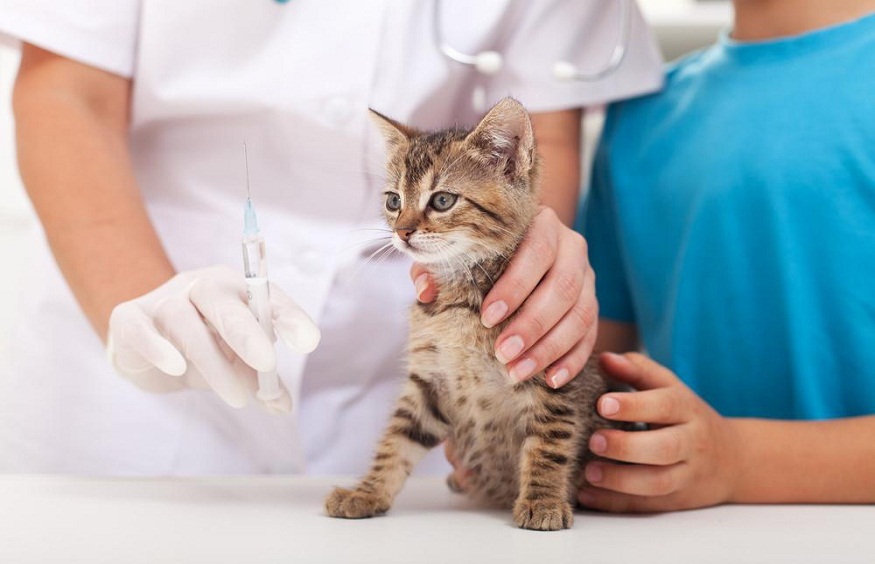
As a loving pet owner, ensuring the health and well-being of your furry companion is a top priority. One of the most effective ways to protect your pet from life-threatening diseases and prevent the spread of infectious illnesses is through vaccinations. Just like human vaccines, pet vaccinations play a crucial role in safeguarding your pet’s immune system and preventing the transmission of diseases to other animals and humans. With the advancement of veterinary medicine, vaccinations have become a cornerstone of preventive care, empowering pet owners to take proactive steps in maintaining their pet’s health.
This article by the experts at a pet clinic in Murrieta, CA will explore the key vaccines provided for pets, their timeline, and benefits.
Why should you vaccinate your pet?
Vaccinations are essential for several reasons:
Protects Against Life-Threatening Diseases
- Rabies: Fatal viral disease transmitted through bites.
- Distemper: Contagious disease affecting multiple organs.
- Parvovirus (Parvo): Highly contagious, potentially fatal gastrointestinal disease.
- Hepatitis: Infectious disease causing liver damage.
- Leptospirosis: Bacterial disease transmitted through water, soil, and other animals.
Prevents Disease Transmission
- To other pets: Vaccinated pets reduce disease spread.
- To humans: Some diseases (e.g., rabies, leptospirosis) can be transmitted to humans.
Reduces Disease Severity
- Even if vaccinated pets contract a disease, symptoms are often milder.
- Faster recovery times.
Boosts Immunity
- Stimulates the immune system to fight off infections.
- Enhances overall health.
Social Benefits
- Vaccinated pets can interact with other animals.
- Reduced risk of disease transmission in social settings (e.g., dog parks, kennels).
Travel and Relocation
- Vaccinated pets can travel without restrictions.
- Comply with regulations for interstate and international travel.
Reduced Veterinary Costs
- Preventing diseases reduces veterinary expenses.
- Fewer hospitalizations and treatments.
Increased Longevity
- Vaccinated pets live longer, healthier lives.
- Reduced risk of disease-related deaths.
What are the types of vaccines for pets?
Here are the types of vaccines for pets:
Core Vaccines
- Rabies: Protects against rabies virus, mandatory in most countries.
- Distemper, Hepatitis, Parvovirus (DHPP): Combination vaccine protecting against distemper, hepatitis, and parvovirus.
- Feline Viral Rhinotracheitis, Calicivirus, Panleukopenia (FVRCP): Combination vaccine protecting against feline viral rhinotracheitis, calicivirus, and panleukopenia.
Non-Core Vaccines
- Bordetella (Kennel Cough): Protects against Bordetella bronchiseptica.
- Leptospirosis: Protects against leptospirosis bacteria.
- Lyme Disease: Protects against Borrelia burgdorferi.
- Adenovirus (Canine Hepatitis): Protects against adenovirus.
- Parainfluenza: Protects against parainfluenza virus.
- Feline Leukemia Virus (FeLV): Protects against feline leukemia virus.
- Feline Immunodeficiency Virus (FIV): Protects against feline immunodeficiency virus.
Optional Vaccines
- Canine Influenza: Protects against canine influenza virus.
- Porphyromonas (Periodontal Disease): Protects against periodontal disease.
- Rattlesnake Vaccine: Protects against rattlesnake venom.
Regional Vaccines
- Heartworm Vaccine (Dirofilaria immitis): Protects against heartworms (regional).
- Chagas Disease Vaccine: Protects against Trypanosoma cruzi (regional).
Vaccine Types
- Killed Vaccines (inactivated viruses/bacteria)
- Modified Live Vaccines (weakened viruses/bacteria)
- Recombinant Vaccines (genetically engineered)
- Conjugate Vaccines (combined with carrier proteins)
When should pets be vaccinated?
You must vaccinate your pets according to the given schedule:
- Puppies: First vaccinations at 6-8 weeks, boosters every 3-4 weeks until 16 weeks.
- Kittens: First vaccinations at 6-8 weeks, boosters every 3-4 weeks until 16 weeks.
- Adult pets: Booster shots as recommended by your veterinarian.
Conclusion
Vaccinations are a crucial aspect of responsible pet ownership, providing a safe and effective way to protect your furry friend from life-threatening diseases. By understanding the importance of vaccinations and staying up-to-date on recommended schedules, you can significantly reduce the risk of disease transmission and ensure your pet lives a long, healthy life. Remember, vaccinations not only safeguard your pet’s health but also contribute to the overall well-being of your community by preventing the spread of zoonotic diseases. Consult with your veterinarian to determine the best vaccination plan for your pet, and take proactive steps towards a healthier, happier life together.

 From Lab to Lifestyle: How the Science of Quality Assurance in Manufacturing Reliable Supplements Protects Consumers and Businesses
From Lab to Lifestyle: How the Science of Quality Assurance in Manufacturing Reliable Supplements Protects Consumers and Businesses  Top Myths About Pediatric Home Health Care Debunked
Top Myths About Pediatric Home Health Care Debunked  Immunity IV Drips – Your Frontline Defense Against Modern-Day Fatigue, Illness, and Burnout
Immunity IV Drips – Your Frontline Defense Against Modern-Day Fatigue, Illness, and Burnout  Is Vasectomy Painful? What Men Should Know about the Procedure
Is Vasectomy Painful? What Men Should Know about the Procedure  Low Blood Oxygen? These 5 Shocking Causes Might Be Putting You at Risk!
Low Blood Oxygen? These 5 Shocking Causes Might Be Putting You at Risk!  Cardiologists And The Approach To Pediatric Heart Conditions
Cardiologists And The Approach To Pediatric Heart Conditions  The Best Practices For Maintaining Healthy Gums In Willow brook
The Best Practices For Maintaining Healthy Gums In Willow brook